Aji Akokomi opened Akoko in late 2020, this being his first restaurant. It showcases West African cuisine, in particular the food of Ghana, Nigeria and Senegal. The format is tasting menu only at £120, though there is a shorter tasting menu available at lunch only. The dining room has an open kitchen, well-spaced tables and has a relaxed atmosphere. The executive chef is head chef is Ayo Adeyemi (formerly of Tippling Club in Singapore) supported by head chef Mattia Gerundio, though today senior sous chef William Brook was running the service. The restaurant was awarded a Michelin star in the 2024 guide.
The wine list had 65 labels and ranged in price from £42 to £500, with a median price of £100 and an average markup to retail price of 3.6 times, which is hefty even by the demanding standards of central Lonodn. Sample references were Mas de Daumas Gassac Reserve de Gassac 2022 at £42 for a bottle that you can find in the high street for £13, Kloof Street Rouge 2020 at £55 compared to its retail price of £17, and Urbina Reserva Especial Rioja 2006 at £85 for a wine that will set you back £28 in the high street. For those with the means there was Chasse Spleen 1989 at £240 compared to its retail price of £65, and Comtes Lafon Meursault Clos de la Barre 2016 at £350 for a wine whose current market value is £263. Filtered water was £2 per person. Corkage was £35.
The meal began with a pair of canapes. Fried oyster was a nod to Gambia, which is noted for its oyster stew. Here the Carlingford Irish oyster was deep fried and rested on a relish of red bell pepper (tatashe). This was very enjoyable, the crisp coating of the oyster a nice contrast to its briny flavour, and the pepper relish was gently spicy and complemented the oyster well. Even better was the other canape, called waina. This is a fermented rice cake from northern Nigeria, topped with spiced chicken mousse, Yassa (Senegalese chicken and onion) cream and crisp leeks. This was reminiscent of a chicken liver parfait and had a light, airy texture and plenty of liver flavour, again lifted by the nicely judged spices (easily 15/20).
This was followed by cured mackerel served with vatapa, a rich sauce of Brazilian origin made from prawns, cashews, bread, and peppers. This was accompanied by moi moi (aka moin moin), a West African steamed pudding made from black-eyed beans. The mackerel was excellent, its natural oiliness offset by the vinegar of the curing process, and the sauce was lovely, being complex and rich and having nicely judged levels of spice. The moin moin has quite a plain flavour and was a good accompaniment to the richness of the sauce (16/20).
Grilled monkfish was brushed with butter and came with ayamase, a Nigerian green pepper sauce. There was also sosu kaani, a sweet Senegalese hot sauce, and a morel stuffed with prawn and scallop mousse. Monkfish is a very difficult fish to cook well, as it all too easily acquires the consistency of cardboard. Here it was very precisely cooked and had excellent texture, and it is a fish with enough flavour to easily stand up to the spice of the sauce. The stuffed morel brought an earthy contrast (16/20).
Next was a supplementary dish (at a chunky £35 extra) of tatale, goat milk cashew cream with caviar. Blini-like plantain pancakes were served on the side. The pancakes had good texture, but the main dish itself was merely pleasant. Part of the issue was the use of Exmoor caviar, not one of the better suppliers (caviar from Kaviara and N25 is much better, as are other suppliers like Kings). The Exmoor Royal Beluski caviar had a slightly muddy flavour, and given this was really the centre point of the dish, the other elements were unable to rescue it (14/20 is kind).
Things got back on track with the next dish, Yorkshire wagyu which was dry-aged for 14 days and brushed with black peppercorns and confit garlic. This was served with a spicy roasted carrot sauce and topped with shito (a Ghanaian relish), with a side dish of jollof rice. There was also rof, a Senegalese dish made of wild garlic and roasted purple carrot. The sauce was deeply flavoured and the beef was tender and carefully cooked, with the spices from the sauce and the relish nicely lifting the flavour of the meat. However, the star for me was the side dish of jollof rice. This dish originated in Senegal many centuries ago (in the days of the Jolof empire), and different versions of it are popular across West Africa. Essentially it is a stewed rice dish with a broth of tomatoes, onions, pepper and curry powder. The version here avoided a wet consistency that some versions have and had rice that was slightly crisp and full of the flavours of the stock. It was absolutely glorious, the best that I have tried. The beef itself and its accompaniments were very good (16/20) but 18/20 is probably too low a score for the rice.
We were so impressed with the jollof rice that we asked for more of it again, this time coming with the next dish of beef tongue that was slow-cooked for 18 hours and then grilled with suya marinade. Suya is a smoked spice meat skewer popular across West Africa, though originating in norther Nigeria. This came with a vibrant sauce made from a peanut biscuit called kulikuli that was made from scratch in the kitchen. To this grains of paradise and spices were added including uda (selim pepper). The ox tongue was tender and nicely complemented by the spicy sauce (17/20).
Pre-dessert was tiger nut mousse topped with fresh blood oranges, marigold oil and a spiced ehuru (calabash nutmeg) tuile. This was enjoyable, the acidity of the late-season blood oranges bringing freshness (14/20). The main dessert was a coffee-based one, based on a Senegalese coffee blend called café touba, made here into a mousse with a filling of manjari ganache (a single-origin Madagascar chocolate) topped with a quenelle of uda ice cream (uda is a peppercorn) and a chocolate tuile. This worked nicely, the classic rich combination of coffee and chocolate contrasted by the gentle spice of the peppercorn (15/20). Coffee was from Difference Coffee, and we had the excellent Jamaican Blue Mountain, which was priced at £10 for a double espresso.
Service was very good, the staff being friendly and enthusiastic. The bill came to £234 per person, though the bill would of course be lower if you opted for the shorter tasting menu and lunch and shared some modest wine. Overall, I was very impressed by Akoko, where the standard of food throughout was high and contained real highlights. The jollof rice in particular was fabulous.


















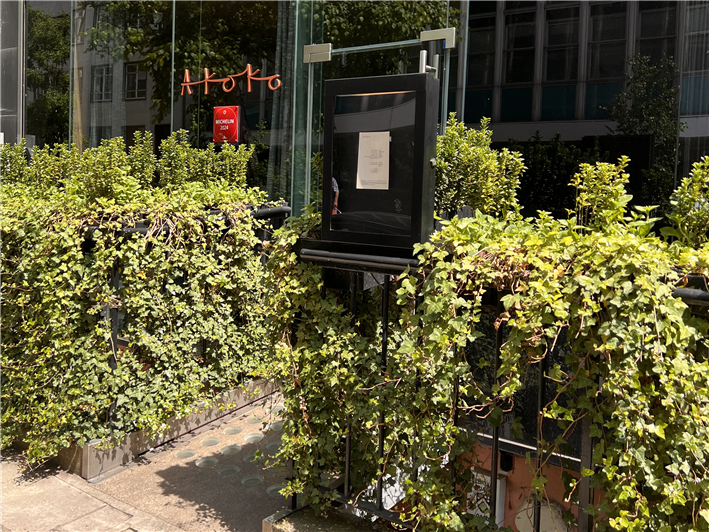

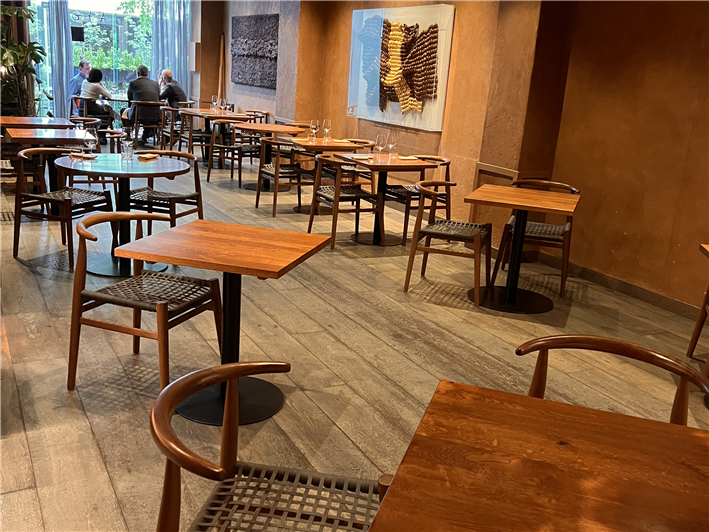
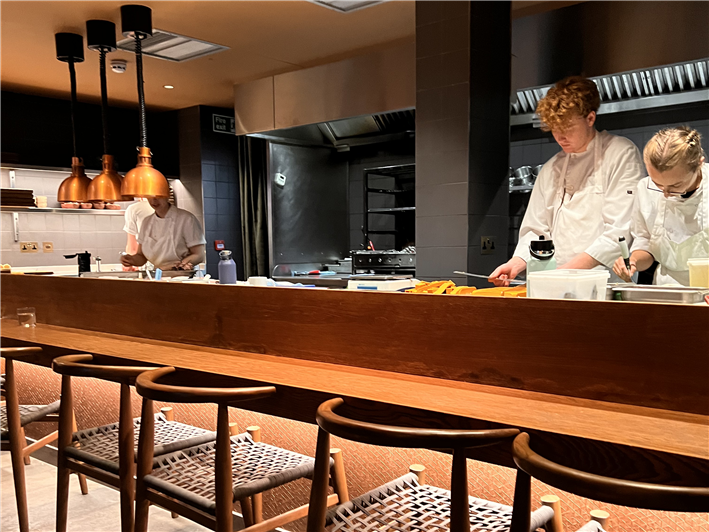
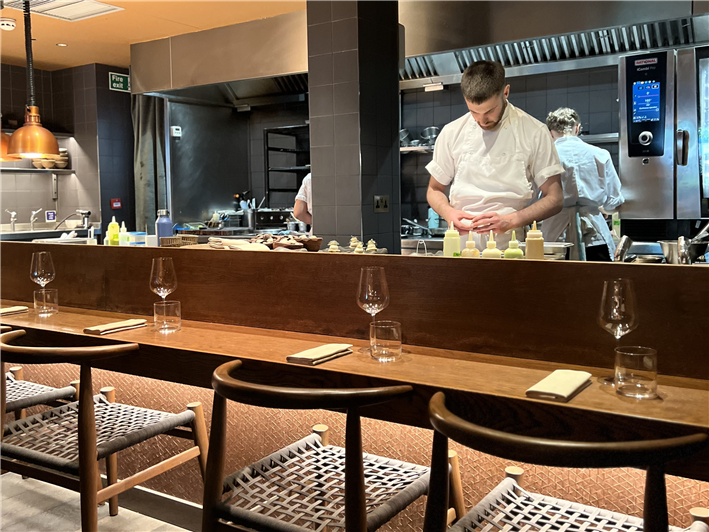
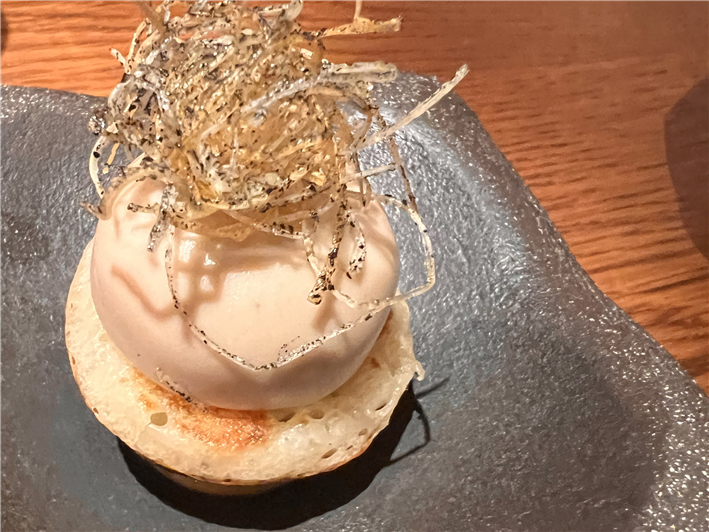
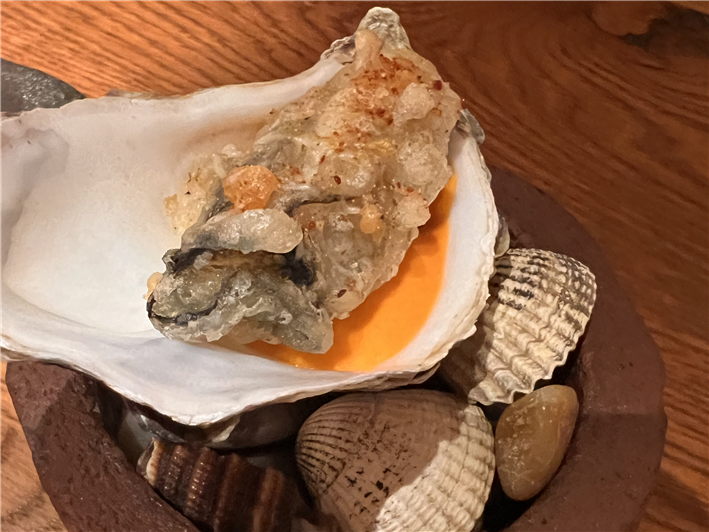
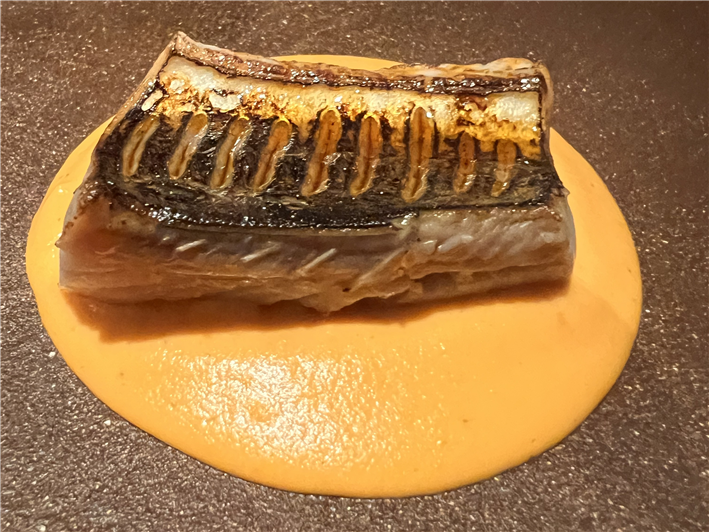
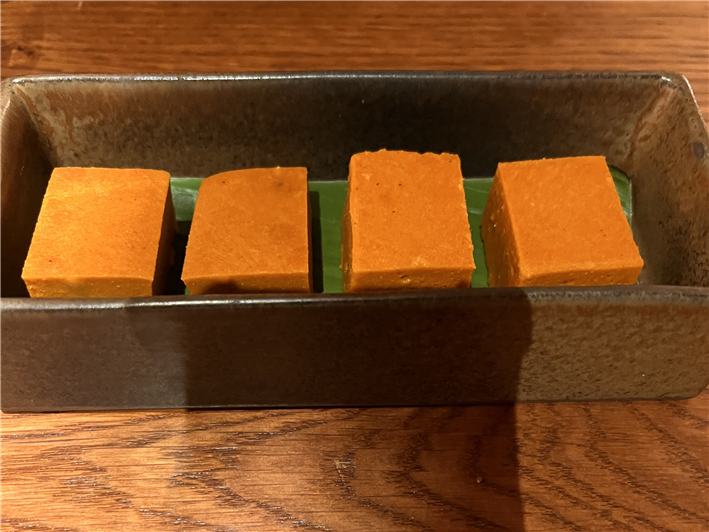
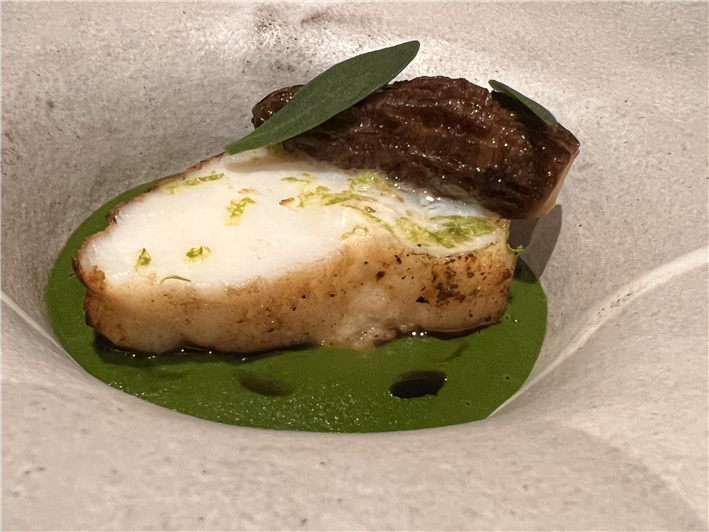
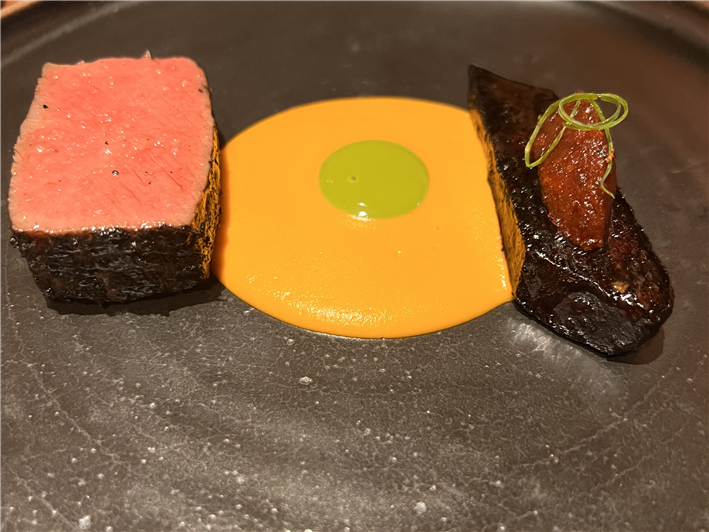
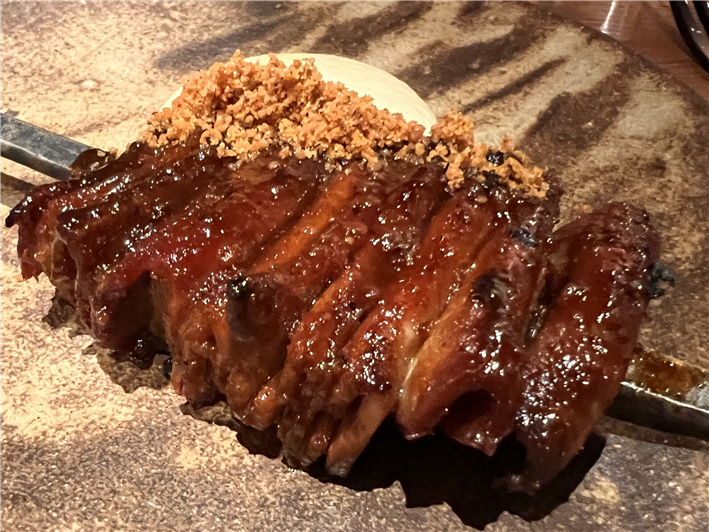
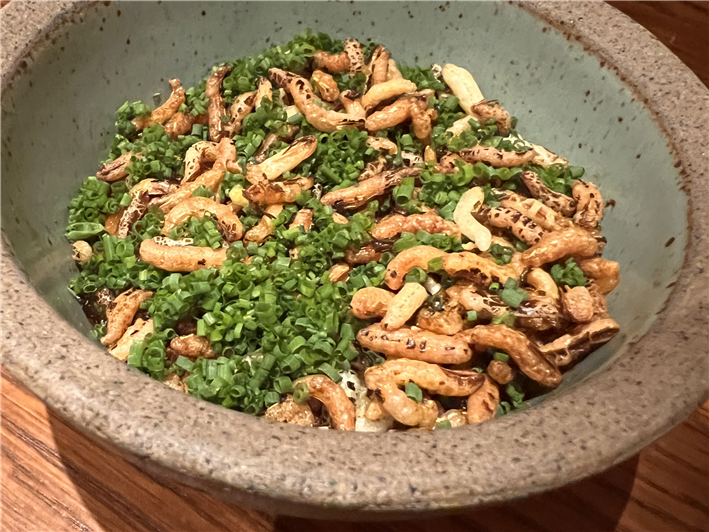
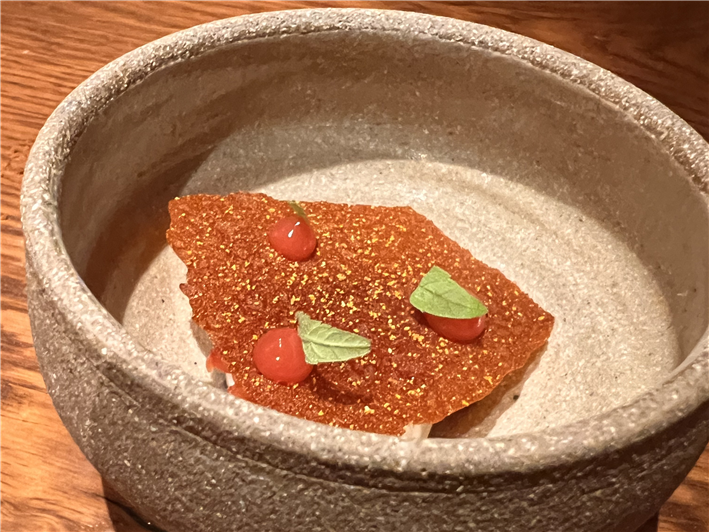
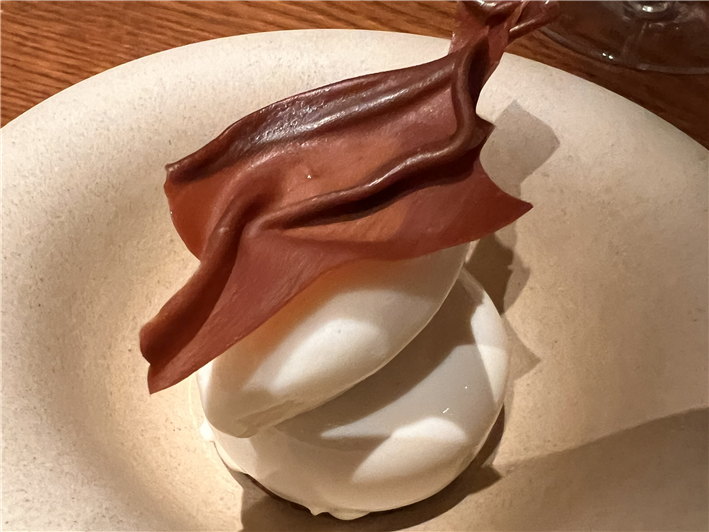
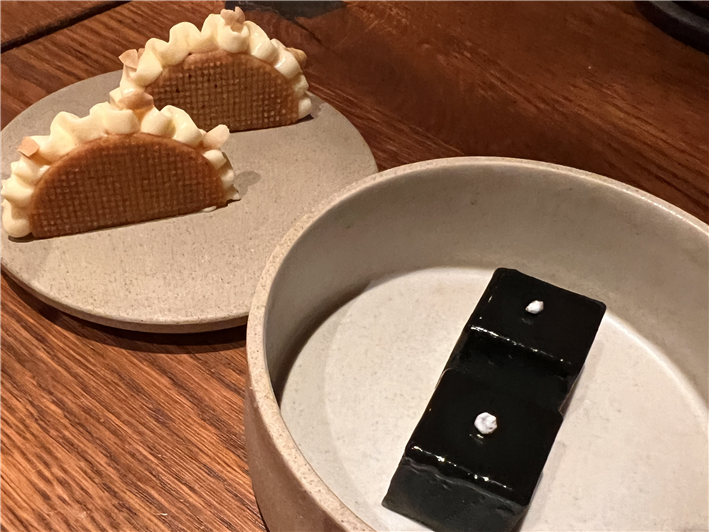
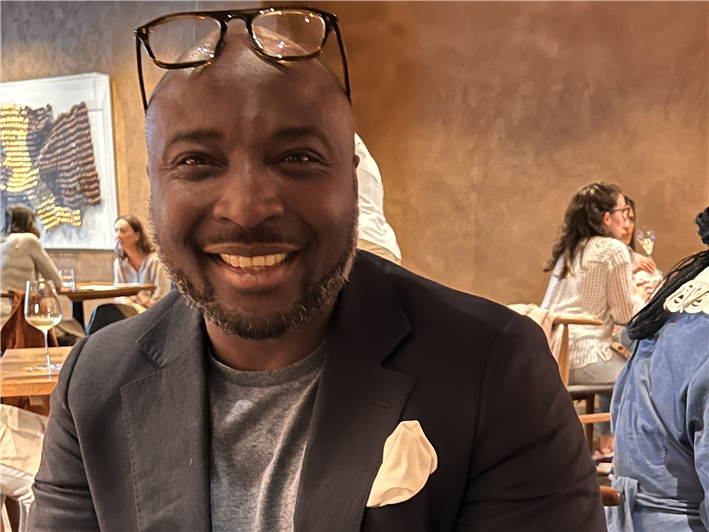

Add a comment
Thank you for submitting your comment, this will be checked and added to the website very soon.
User comments